Description
ABSTRACT
Nearly Always, A Strike or Lock Out is Unlawful in Nigeria
Professor Joseph Abugu*
This paper examines the lawfulness of strikes within the framework of statutory provisions delineating the boundaries of industrial action and the immunities available under Nigerian statute law for torts committed by trade unions and their officials in the course of a trade dispute. It observes that lawful strikes are virtually impossible in this country notwithstanding its democratic ideals. Whilst the constitution guarantees freedom of association and the right to join or form a trade union, existing statutory provisions negate the exercise of trade union activity in the form of strikes or lockouts. The paper advocates a change of the existing legal regime in favour of one that meaningfully recognizes the right to strike and lockout and facilitates its exercise.
The right to strike is a keystone of modern democratic society.1 No society, which lacks that right, can be democratic. Any society which seeks to become democratic must secure that right. In Crofter Harris Tweed & Co v Veitch, Lord Wright2 said:
Where the rights of labour are concerned, the rights of the employer are conditioned by the right
of men to give or withhold their services. The right of the workmen to strike is an essential
element in the principle of collective bargaining.
Nigeria became independent of British rule in 1960 and a Republic since 1963.3 While the colonial masters left a legacy of democratic rule in a parliamentary system of Government recognizing basic human rights, these were soon truncated by a series of military coups.4 It is in this context that core labour and industrial relations legislation in Nigeria were fashioned and decreed under military rule. The extent to which Nigerian labour and industrial relations laws have moved away from the influence of military dictatorships to respect democratic rights including in particular, the right to trade union activity and industrial action will become evident in this paper.
Basically, the right to strike in Nigeria is defined by reference to (i) the common law formulation of the right; (ii) provisions of the Constitution of the Federation; (iii) Statutory provisions; and (iv) immunities conferred on trade unions and their officials from tortuous liability in prosecuting their objects.
* Head, Commercial and Industrial Law Department, Faculty of Law, University of Lagos.
- A strike refers to a situation where workers collectively, usually temporarily, withdraw their labour, or indicate their intention to do so in order to press home a demand regarding terms and conditions of employment.
- [1942] 1 ALL ER 142 .
- The English common law principles of equity and statutes of general application in England as at the 1st day of January 1900 had been made applicable in Nigeria even before independence.
- The first coup was on January 1st 1966 and Major-General Johnson Aguiyi-Ironsi became Head of State. A Counter coup in the
same year brought Major General Yakubu Gowon as Head of State. Nigeria thus thrived under military dictatorship for the next 13 years. In 1979, the country was returned to democratic governance with a Presidential Constitution. This lasted barely four years and yet another military coup brought Major General Muhammadu Buhari as Head of State. The Constitution was suspended and overridden by military decrees. Military rule continued, beset with other coups, until the country was returned to democratic governance in 1999 under a remodeled Presidential Constitution.

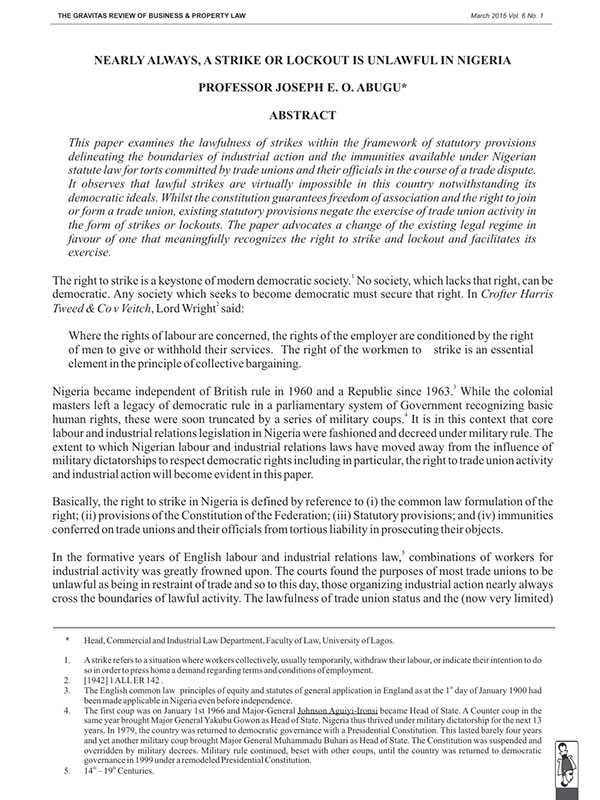
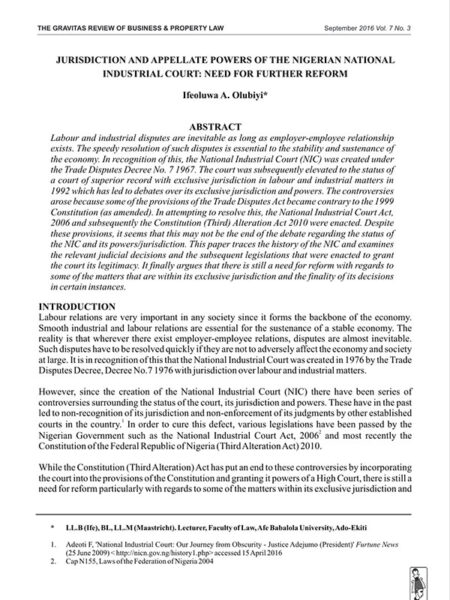
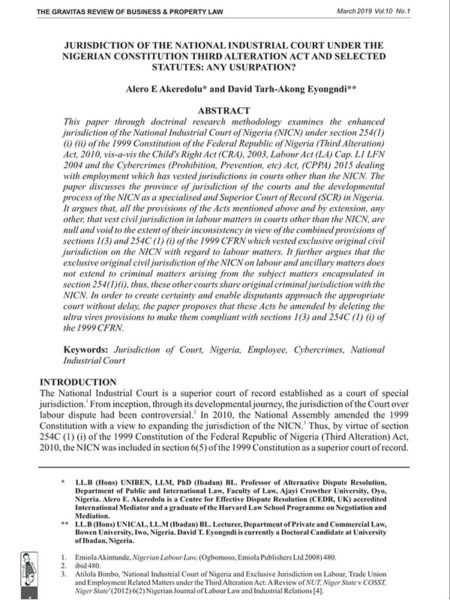
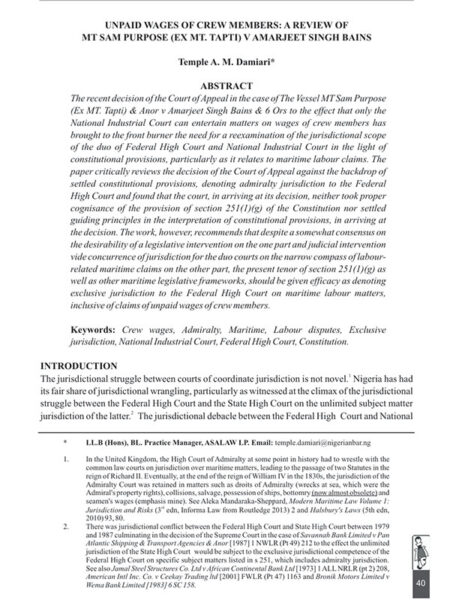
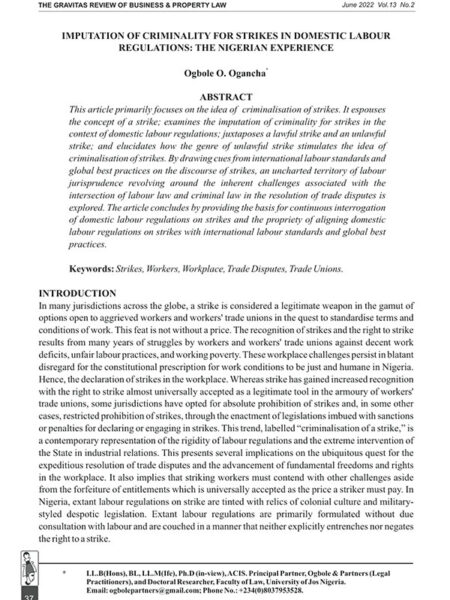


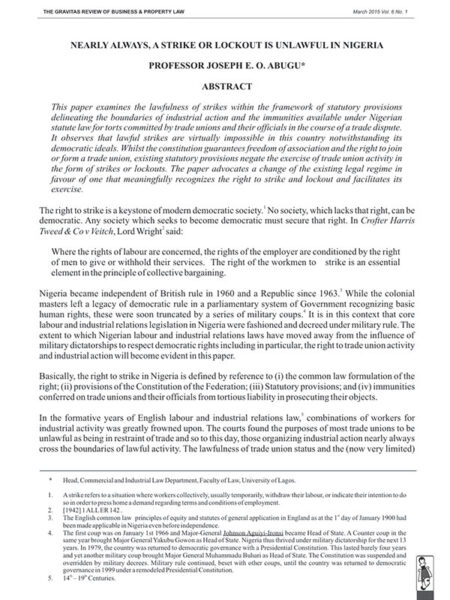
Reviews
There are no reviews yet.